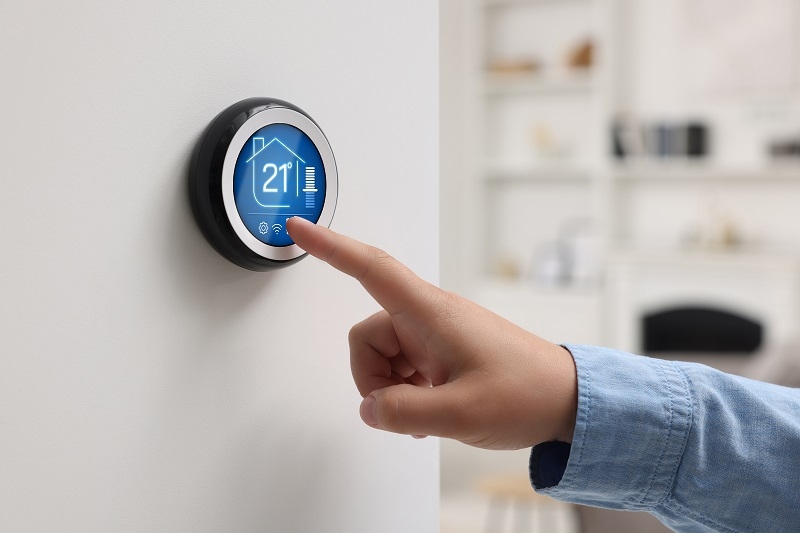
You lock your doors. You double-check the oven. You even unplug the toaster before heading out. But despite all that, your home insurance premium still feels like a slap in the face every year.
Sound familiar?
What if we told you that your insurance company wants you to have a safer home—and they’re even willing to lower your premiums if you install a few smart devices?
That’s right. Welcome to home insurance 2025, where your gadgets aren’t just making life easier—they’re actually helping you save money. Real, noticeable, monthly savings. We’re talking about a concept that blends convenience, protection, and smart home savings all in one go.
This isn’t one of those “maybe someday” futuristic things either. It’s happening right now. Today’s smart homes are reshaping the insurance landscape—and if you’re not taking advantage, you’re leaving money on the table.
Let’s break it all down, human-style.
Okay, let’s start with the basics: why do smart home devices even matter to insurance providers?
The answer’s pretty simple. Insurance is all about risk. The more risk your home presents—burglary, fire, water damage—the more you pay. But if you can reduce that risk with smart tech? Well, you become a much more appealing customer.
And insurance companies? They’ll often reward you with home insurance discounts when you make those upgrades.
We're not just talking about doorbell cameras anymore. The smart home ecosystem has exploded in 2025, offering advanced tech that prevents everything from fires to floods before they even happen.
Don’t expect your premiums to be slashed in half (we wish). But you can often shave 5–15% off your yearly home insurance costs depending on your provider and what devices you install.
Combine multiple smart devices, and those savings stack up.
And we’re not even counting the extra benefits—like peace of mind, better control over your home, or lower utility bills from energy-efficient gadgets.
So, what smart devices should be on your radar?
Let’s get into the heart of it. These five devices are leading the charge when it comes to earning discounts and reducing risk. If you're shopping for smart home savings, this is your shopping list.
Why insurers love them: Fires and carbon monoxide incidents are costly—not just in damages but in lives. Smart detectors alert you instantly (via phone or smart hub) when something’s wrong, even if you're away.
Popular Picks in 2025:
Insurance Perks: Many providers offer home insurance discounts just for installing smart fire and CO2 sensors—especially if they’re monitored or linked to your phone.
Bonus: Some models self-test regularly and tell you when batteries are low. No more mystery beeps at 3 AM.
Why insurers love them: Theft is one of the most common homeowner claims. A visible security setup—including smart cameras, sensors, and alarms—deters break-ins before they happen.
What counts as a smart security system?
Top Systems in 2025:
Insurance Perks: Smart systems can earn you up to 15% off in some cases, depending on your location and setup. Just make sure you notify your insurer once it's installed.
And yes, installing smart security systems might be the single biggest tech-related way to cut insurance costs in 2025.
Why insurers love them: Water damage is sneaky—and expensive. A burst pipe, a slow leak, or a failed appliance can cause thousands in damage. Sensors help you stop the problem early.
How they work: Sensors detect moisture in areas like basements, under sinks, or near washing machines. Some systems even automatically shut off the water supply if a leak is detected.
Top Devices in 2025:
Insurance Perks: Some providers now require leak sensors in high-risk areas for certain policies. If they don’t require them, they’ll likely still offer a small discount—and major praise for being proactive.
Extra Tip: Link these to your phone so you get real-time alerts. That "drip, drip, drip" sound you don’t hear? Could be a nightmare saved with a sensor.
On a Related Note: Understanding Replacement Cost vs Actual Cash Value

Why insurers love them: While not as directly tied to damage prevention, smart thermostats help manage heating systems and reduce risks like frozen pipes.
How they help: If your home’s temperature drops too low while you’re away, a smart thermostat can notify you—or even automatically raise the heat.
Top Models in 2025:
Insurance Perks: Not every insurer offers discounts for thermostats alone. But bundled with other devices? That’s where the magic happens. Plus, lower energy bills = more long-term savings.
Why insurers love them: Burglars don’t need to break windows—they often just walk through unlocked doors. Smart locks reduce human error (like forgetting to lock up) and increase control.
Cool Features in 2025:
Top Picks:
Insurance Perks: Similar to other IoT home coverage options, smart locks often count toward discounts if part of a larger security system.
Real Talk: No more hiding keys under the mat. No more panicking mid-flight wondering if you locked the door. Total win.
Just installing these gadgets won’t automatically lower your premium. You’ve got to take the next step:
1. Talk to Your Insurer
Some companies offer clear discount programs for smart devices. Others? You’ll have to ask (and maybe nudge a little). Either way, don’t assume—it pays to ask.
2. Provide Proof
Send receipts, installation photos, or serial numbers. Some insurers might even require activation or monitoring reports for eligibility.
3. Bundle for Bigger Rewards
One smart device may save a little. But combine multiple—security + fire + water + lock system—and you could unlock larger savings.
4. Review Annually
New gadgets launch. Policies change. Set a calendar reminder to review your setup and ask if any new home insurance 2025 perks are available.
Here’s a peek into where things are heading:
In short, the line between tech and insurance is blurring—and it’s making home protection smarter, faster, and cheaper.
Further Reading: Location Impact on Home Insurance Premiums Explained
If your home still relies solely on a deadbolt and a smoke detector from 1998, it might be time for an upgrade. Not because it’s trendy. But because it’s smarter—for your safety, your peace of mind, and yes, your wallet.
From advanced leak detectors to full-blown smart security systems, today’s tech does more than protect—it rewards. With the right setup, you're not just creating a safer home… you're building a better deal with your insurer.
So go ahead. Install that camera. Upgrade that detector. Sync your home.
And watch those smart home savings roll in.
This content was created by AI